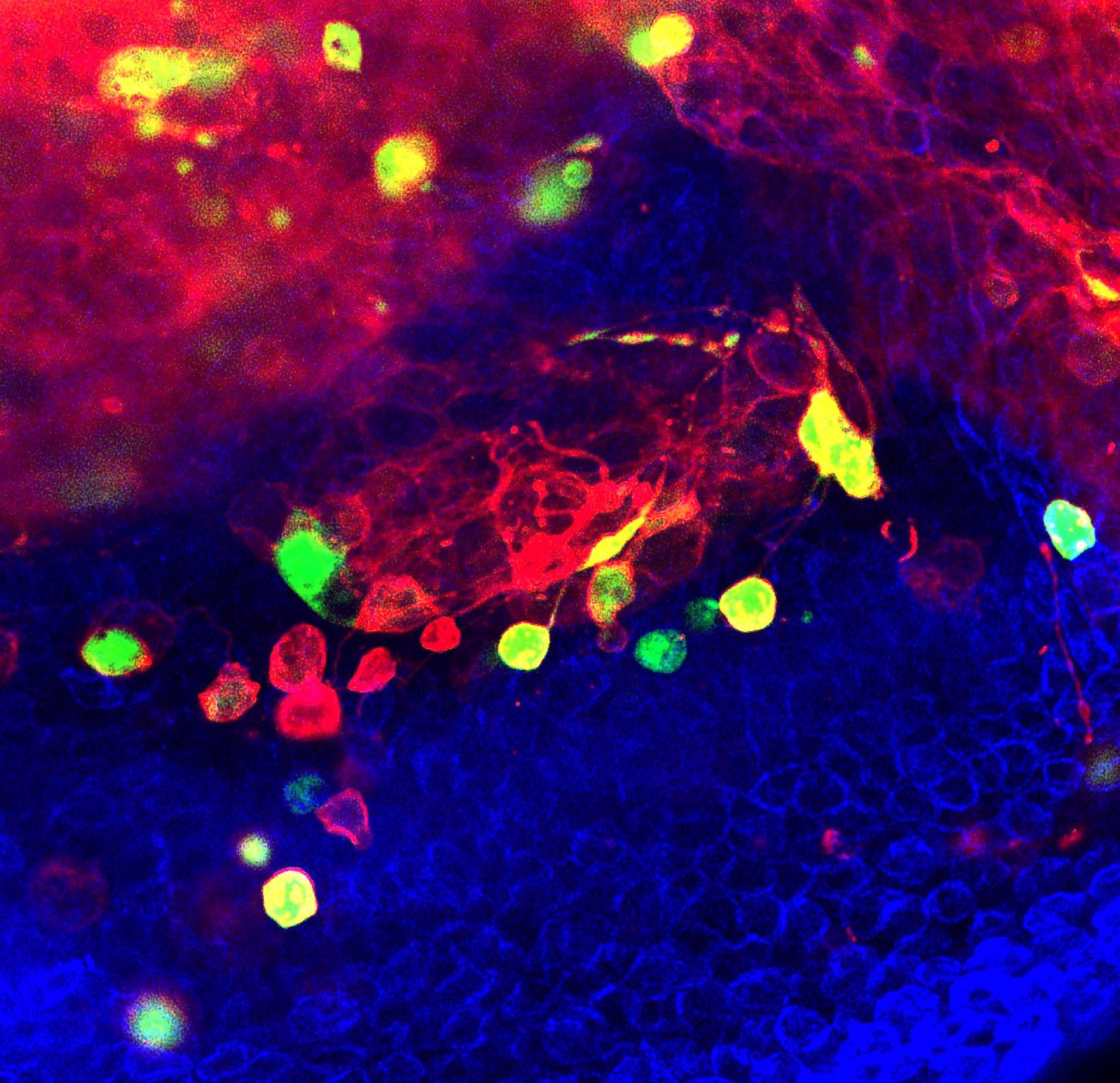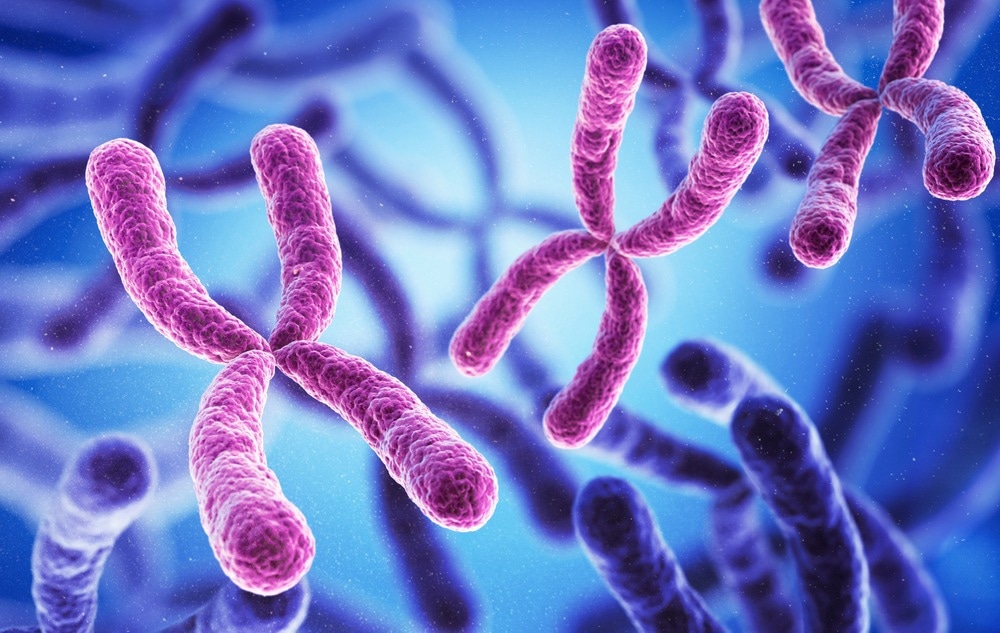Chromosomal instability is a phenomenon marked by rapid alterations in the count and configuration of chromosomes during cell division. This occurrence is prevalent in solid tumors and is closely associated with the aggressive dissemination of cancer, known as metastasis.
 In cells with high levels of chromosomal instability (in red), activation of the apoptotic caspases (in green) plays a fundamental role in tissue invasiveness. Image Credit: Mariana Muzzopappa.
In cells with high levels of chromosomal instability (in red), activation of the apoptotic caspases (in green) plays a fundamental role in tissue invasiveness. Image Credit: Mariana Muzzopappa.
Considering that metastasis is responsible for 90% of cancer-related fatalities, it becomes crucial to unravel the intricacies of this process for improved understanding and potential therapeutic interventions.
Researchers from IRB Barcelona’s Development and Growth Control laboratory, under the leadership of ICREA researcher Dr Marco Milán, have unveiled a mechanism through which DNA damage resulting from chromosomal instability enhances the invasiveness of cancer cells.
The study elucidates how this instability triggers the activation of the JAK/STAT signaling pathway and encourages caspase activity, subsequently causing DNA injury. This DNA damage facilitates the escape of cells from the primary tumor, ultimately promoting the process of metastasis.
We have long considered caspases as agents that induce cell death in response to DNA damage. However, our findings indicate that they may also play a pro-invasive role by promoting DNA damage. This research broadens our understanding of cancer biology and paves the way to exploring new therapeutic approaches to tackle metastasis.”
Dr Marco Milán, Institució Catalana de Recerca i Estudis Avançats
Chromosomal Instability in Metastatic Tumors: Three Side Effects
Chromosomal instability, commonly found in solid tumors, fosters cancer metastasis through three secondary pathways: aneuploidy, leading to cellular stress due to an irregular chromosome count; the creation of micronuclei and the consequent initiation of an inflammatory response; and DNA damage resulting from chromosome breakage.

Image Credit: Anusorn Nakdee/Shutterstock.com
Under the leadership of Dr Milán, the laboratory at IRB Barcelona has dedicated many years to investigating the role of chromosomal instability in cancer and metastasis. In earlier studies published in 2021 and 2018, the team delved into the effects of aneuploidy on this process. In their current work, they elucidate the third dimension of this phenomenon, specifically, the impact of DNA damage on the invasiveness of cancer cells.
Three Causes of DNA Damage
Chromosomal instability can induce DNA damage through three distinct mechanisms. Firstly, the irregular segregation of chromosomes can lead to DNA chain breakage. Secondly, the imbalance in chromosome numbers disrupts cellular processes, resulting in stress during DNA replication.
Thirdly, as outlined in this study, aneuploidy also triggers the JAK/STAT signaling pathway, which subsequently activates caspases and initiates DNA damage. Under normal conditions, caspases play a role in causing DNA damage, prompting cell breakdown and disintegration. However, the researchers have now elucidated how reduced caspase activity levels facilitate DNA damage, granting cancer cells the capability to metastasize.
Source:
Journal reference:
Barrio, L., et al. (2023). Chromosomal instability-induced cell invasion through caspase-driven DNA damage. Current Biology. doi.org/10.1016/j.cub.2023.09.004.